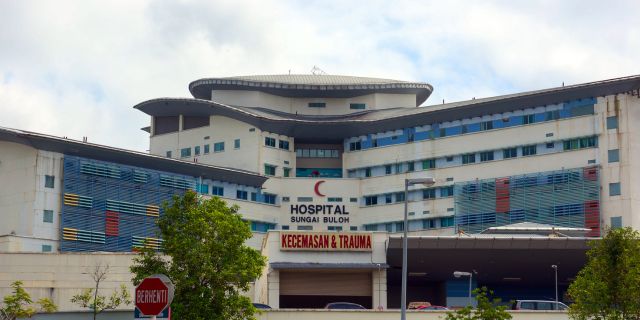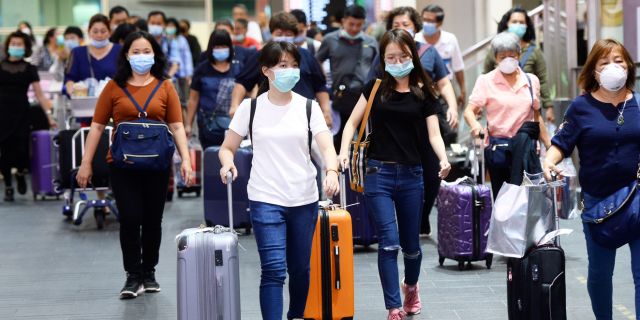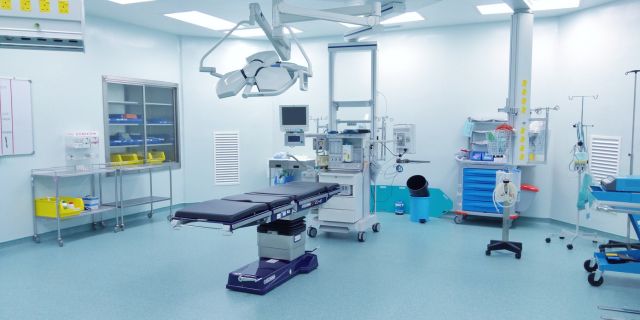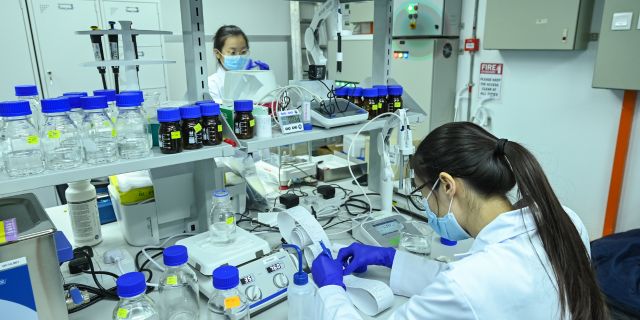Do you want medical tourism in Malaysia soon or in the future? Check out the E-book with a complete guide covering all the information you need about Malaysia!
Fill in the form below to get your FREE E-book crafted by Taco Heidinga, Global Strategic Advisor in Juwai IQI.

Are you tired of sky-high medical bills and endless waiting lists? Imagine a world where top-notch healthcare is affordable and accessible. Sounds too good to be true?
Well, it might just be your reality with Malaysia’s healthcare system! This is an ultimate guide, breaking down everything, especially about what so good about Malaysia Healthcare System and why it’s making waves globally.
Healthcare System in Malaysia
- 1. Why is Everyone Talking About Malaysia’s Healthcare System?
- 2. A Two-Tiered System: Public and Private Healthcare
- 3. Public Healthcare: Affordable and Accessible
- 4. Private Healthcare: World-Class Treatment and Shorter Waits
- 5. The Best of Both Worlds: A Symbiotic Relationship
- 6. Medical Tourism: Malaysia’s Rise as a Global Healthcare Hub
- 7. Addressing the Pain Points: What Matters Most to You
- 8. Looking Ahead: Continuous Improvement and Innovation
- The Verdict: A Healthcare System That Delivers
1. Why is Everyone Talking About Malaysia’s Healthcare System?

Malaysia’s healthcare system has emerged as a global model, attracting attention from both individuals seeking affordable, high-quality medical care and healthcare professionals impressed by its efficiency and advanced infrastructure.
But what exactly makes it stand out? Let’s delve into the details that showcase why Malaysia’s healthcare system is ranked 49th in the world by the World Health Organization (WHO) and continues to attract medical tourists worldwide.
2. A Two-Tiered System: Public and Private Healthcare

Malaysia operates a two-tiered healthcare system, which blends a government-funded, universal healthcare scheme for citizens with a vibrant private healthcare sector.
This dual approach caters to the needs of its population and has turned the country into a sought-after medical tourism destination.
3. Public Healthcare: Affordable and Accessible
The cornerstone of Malaysia’s healthcare system is its public sector, offering universal healthcare coverage to all citizens and legal residents. The government heavily subsidizes the cost of care at public facilities, making it incredibly affordable.
In fact, you might be surprised to know that a visit to a government medical center for a minor ailment like a cold could cost as little as $10, with follow up as cheap as $15. Specialist consultations in public hospitals are also remarkably affordable, ringing in at about $40.
This affordability is primarily due to substantial government funding and the commitment to ensuring that healthcare remains accessible to everyone, regardless of their financial situation. Funding increased by nearly 50% recently, with 5% of the government’s social sector development budget dedicated to public healthcare.
a. Benefits of Public Healthcare in Malaysia
| Feature | Description |
| Cost | Highly affordable due to government subsidies. A visit for a minor ailment can cost as little as $10. |
| Accessibility | Available to all citizens and legal residents. |
| Coverage | Universal healthcare coverage. |
| Quality of Care | Generally high, with well-equipped facilities and well-trained medical professionals. |
| Specialist Consultation | About $40 for a specialist consultation, $15 for follow-up. |
| Hospital Stay | Around $50 per night for a private room |
| Funding | 5% of the government’s social sector development budget is allocated to public healthcare, which amounts to an increase of almost 50% in the past few years. |
| Treatment Packages | Many public hospitals offer economical healthcare packages focused on screening and preventive health, costing around $70 for a comprehensive physical examination. |
| Disease Mortality Rate | Infant mortality rate have improved over the past 25 years and is on par with North America and Western Europe. |
| Other Treatment | Common and some rare medical procedures are cheap or, in some cases, free. Ex: Dengue fever treatment is free in public hospitals, a coronary bypass is around $967, and one stent angioplasty is 12 – 48. |
Source: International Citizens Insurance
4. Private Healthcare: World-Class Treatment and Shorter Waits
For those seeking faster access, cutting-edge treatments, and premium facilities, Malaysia’s private healthcare sector shines. Many of these private hospitals rival five-star hotels in terms of comfort and amenities, catering primarily to affluent Malaysians, expatriates, and medical tourists.
Private healthcare facilities are primarily self-funded or covered by private insurance, which allows them to maintain a higher doctor-to-patient ratio, significantly reducing waiting times.
The cost for the same treatment in private healthcare can be considerably higher than in public. Ex: Dengue fever treatment in a private hospital can cost $242 – $725, a coronary bypass surgery $6,500 – 19,345, and one stent angioplasty $3,628−10,886. While the cost is high compared to public options, it is much less than in countries like the US.
a. Why Choose Private Healthcare in Malaysia?
- Shorter Waiting Times: This is perhaps the most significant advantage, particularly for non-emergency procedures or specialist consultations. This is one of the primary reasons most expats and medical tourists opt for private hospitals.
- State-of-the-Art Facilities: Private hospitals often boast the latest medical technologies and equipment, attracting patients seeking cutting-edge treatments. Private hospitals invest heavily in the latest technology to keep up with international standards.
- Luxury and Comfort: Many private hospitals provide a luxurious experience, with private rooms, personalized service, and amenities that rival high-end hotels. It was even noted in some articles that these private hospitals are comparable to hotels.
- International Accreditation: Many private hospitals in Malaysia have received accreditation from international bodies like the Joint Commission International (JCI), ensuring they meet rigorous quality standards. Many hospitals in Malaysia are internationally accredited.
5. The Best of Both Worlds: A Symbiotic Relationship
What truly sets Malaysia’s healthcare system apart is the synergy between its public and private sectors. The government actively encourages the growth of the private sector, recognizing its role in attracting medical tourists and reducing the burden on public facilities.
This has led to healthy competition, driving up standards across the board. Malaysia’s two-tiered system is a prime example of an effective public-private partnership in healthcare.
6. Medical Tourism: Malaysia’s Rise as a Global Healthcare Hub

Malaysia’s reputation for high-quality, affordable healthcare has made it a magnet for medical tourists from around the globe. In 2022 alone, over 850,000 individuals visited Malaysia specifically for healthcare purposes, generating revenue of more than 1.3 billion Malaysian ringgit.
In 2023, this figure increased to RM2.23 billion. The Malaysia Healthcare Travel Council (MHTC), established by the Ministry of Health in 2009, plays a crucial role in promoting the country as a premier medical tourism destination. Their recent initiative, the Malaysia Healthcare Travel Blueprint 2021-2025, hopes to bring in RM1.7 billion by 2025.
a. Why do Medical Tourists Flock to Malaysia?
- Cost Savings: Medical procedures in Malaysia can cost a fraction of what they do in Western countries, even when factoring in travel and accommodation. According to the MHTC, patients can save up to 65-80% compared to the US or UK.
- High-Quality Care: Medical tourists are assured of receiving top-notch medical treatment from highly skilled professionals in internationally accredited facilities. Most of these professionals are internationally recognized.
- No Language Barrier: English is widely spoken in Malaysia, particularly within the healthcare sector, making communication easy for international patients. Doctors and most nurses in Malaysia speak English, so it is easy for most Expats to transition to life there.
- Advanced Medical Technology: Malaysia has invested heavily in cutting-edge medical technology, ensuring patients have access to the latest diagnostic and treatment options.
- Vacation While You Recover: Many medical tourists combine their treatment with a vacation, taking advantage of Malaysia’s stunning beaches, vibrant cities, and rich cultural heritage. This is encouraged by hospitals offering packages in partnership with hotels.
- Welcoming Environment: Malaysians are known for their warm hospitality, making international patients feel comfortable and well-cared for.
7. Addressing the Pain Points: What Matters Most to You

As someone considering Malaysia’s healthcare system, you likely have specific concerns.
Let’s address them head-on:
a. “Is it really that much cheaper?”
Absolutely. We are talking about potential savings of up to 80% compared to the US or UK for comparable procedures, and even more in other, specific treatments. Let’s look at some data for some common treatments compared to the US:
| Treatment | Malaysia (USD) | USA (USD) |
| Coronary Artery Bypass | 12,000 | Over 100,000 |
| IVF | 4,000 | Over 12,000 |
| Dental Implants | 1,500 | 3,000 – 5,000 |
Source: The Malaysian Reserve
b. “Will I understand the doctors and nurses?”
Rest assured, English proficiency is high among healthcare professionals in Malaysia, especially those working in the private sector or with international patients.
c. “Is the quality comparable to what I’m used to?”
Malaysia’s healthcare system consistently ranks highly in international comparisons, with many hospitals holding JCI accreditation, signifying adherence to global standards.
d. “What about specialized treatments?”
Malaysia offers a wide range of specializations, including cardiology, oncology, fertility treatments, orthopedics, and cosmetic surgery, often at a significantly lower cost than in Western countries.
The country is even renowned for its fertility and cardiology treatments, which puts it in competition with the world-class medical centers across Asia.
8. Looking Ahead: Continuous Improvement and Innovation

Malaysia is not resting on its laurels. The government is committed to continuous improvement, investing heavily in healthcare infrastructure, technology, and training. Initiatives like the National Medical Research Register, and Clinical Research Malaysia demonstrate a dedication to advancing medical research and adopting new, innovative treatments.
Malaysia is also making strides in telemedicine, digital health platforms, and even exploring the integration of traditional and complementary medicine into mainstream healthcare. The overall spending on public hospitals has lowered recently, though, causing an influx of doctors leaving the public sector.
Frequently Asked Questions (FAQs):
a. Is healthcare free in Malaysia?
Healthcare in Malaysia’s public system is heavily subsidized by the government, making it very affordable for citizens and legal residents. However, it is not entirely free, as patients do pay nominal fees for consultations and treatments. For expats, healthcare is not free and private insurance is usually required.
b. How much does it cost to see a doctor in Malaysia?
In the public system, a visit to a general practitioner can cost as little as RM1 (about $0.25), while a specialist consultation is around RM5 (about $1.20). Private doctor consultations typically range from 15 – 100 or more, depending on the specialty and the facility. The range of costs between public and private vary wildly. For instance, treatment for dengue fever is free in a public facility, while that same treatment in private can range between $242 – $725.
c. Which are the best hospitals in Malaysia?
Malaysia has numerous excellent hospitals, both public and private. Some of the most renowned include:
Public: Kuala Lumpur General Hospital, Penang General Hospital
Private: KPJ Ampang Puteri Specialist Hospital, Gleneagles Kuala Lumpur, Sunway Medical Centre, Prince Court Medical Centre, Institut Jantung Negara (IJN), Island Hospital, Mahkota Medical Centre, and Subang Jaya Medical Centre.
d. Can foreigners use the public healthcare system in Malaysia?
Yes, foreigners can access Malaysia’s public healthcare system, but they will be charged at a higher rate than citizens and legal residents. It is advisable for expats to have private health insurance.
e. What is the Malaysia My Second Home (MM2H) program, and does it cover healthcare?
The MM2H program is a visa program that allows foreigners to live in Malaysia for an extended period. While it doesn’t directly cover healthcare, it can make accessing private healthcare services more convenient.
f. How does Malaysia’s healthcare system compare to other countries?
Malaysia’s healthcare system consistently ranks well in global comparisons, particularly in terms of affordability and quality. It is often compared favorably to systems in the US, UK, and other developed nations due to its lower costs and comparable quality standards.
g. What are the biggest challenges facing Malaysia’s healthcare system?
While Malaysia’s healthcare system has many strengths, it also faces challenges such as a shortage of healthcare professionals in rural areas, an aging population, a lack of doctors in the public healthcare system, and the rising cost of healthcare.
The government is actively working to address these issues through various initiatives, including investing in rural healthcare infrastructure and expanding telehealth programs to connect rural patients with doctors, refurbishing existing hospitals, building new hospitals, and creating almost 400 locations for free or almost-free clinics called Community Clinics.
The Verdict: A Healthcare System That Delivers

Malaysia’s healthcare system offers a compelling combination of affordability, quality, and accessibility. Whether you’re a Malaysian citizen, an expat, or a medical tourist, you can expect to receive excellent care in a system that prioritizes both efficiency and compassion.
With its continuous advancements and commitment to improvement, Malaysia is undoubtedly solidifying its position as a global healthcare leader.
Invest in Malaysian real estate and enjoy access to a world-renowned healthcare system. Contact us now and secure your future with a smart property investment in a thriving and healthy nation!
Continue Reading:
- Why International Students Love Studying in Malaysia?
- Property Purchase and Rental Price in Malaysia Market.
- Why Malaysia is the Perfect Destination for Foreign Investors?
Citation, Reference and Information Related to the Malaysia Healthcare System
- International Citizens Insurance
Understanding Malaysia’s Healthcare System
2. Statista
Medical tourism in Malaysia – statistics & facts
3. AIA
6 Things You Should Know About Healthcare in Malaysia
4. The Malaysian Reserve
Malaysia’s advanced healthcare attracts international patients
5. Homage Malaysia
10 Reasons Why Malaysia Is The Best For Medical Tourism
6. International Trade Administration
7. Traveloka
Why Malaysia is The Preferred Destination for Medical Tourism
